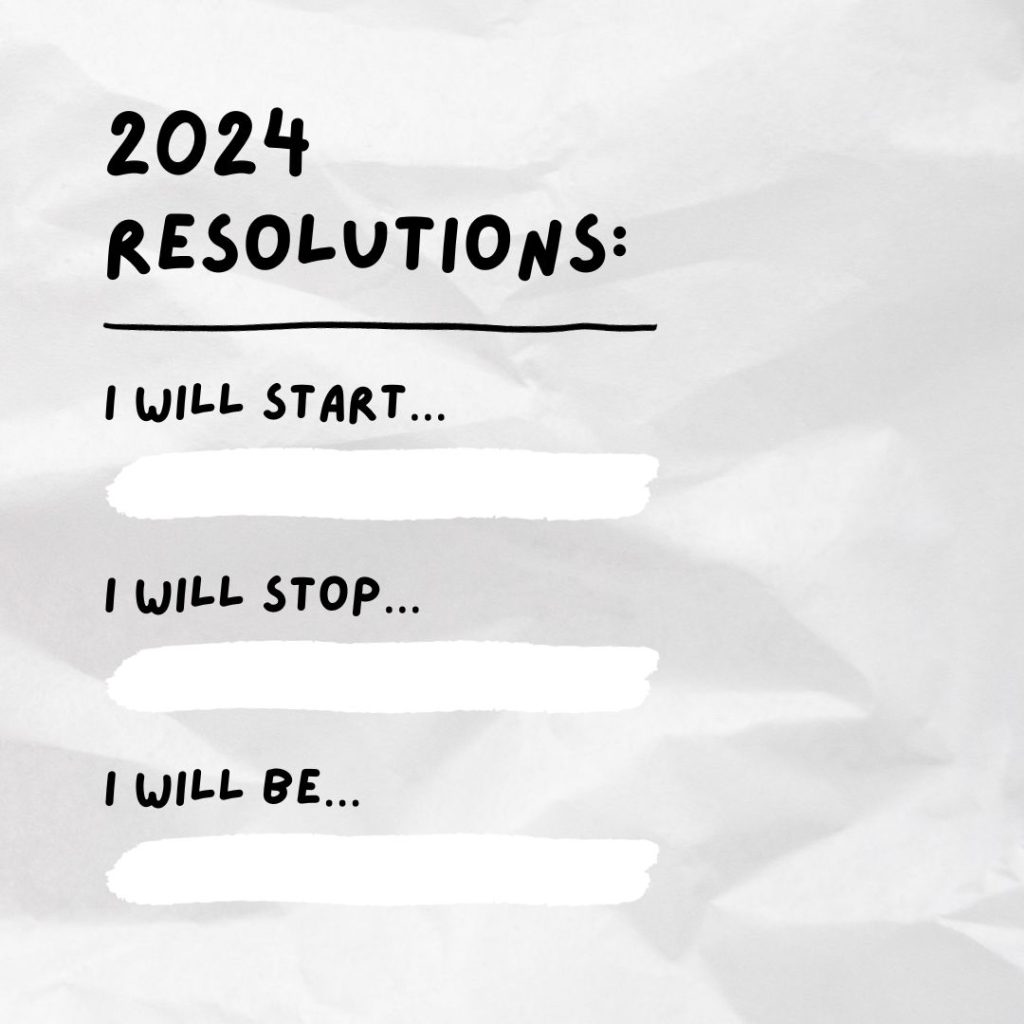New Year’s Resolutions: A Mental Health Prospective
Every year there is chatter about New Year’s Resolutions. Some people have a long list of things they’re going to change in the New Year, while others might have just one thing to change. Some have extreme changes, others just minor. While there are many opinions about resolutions as a whole, there are some important factors to consider to ensure your resolution is helpful and successful.
Why now?
Is there something magical about January 1 of a new year? No. So, why now? Spend some time thinking about if now is the right time to set your resolution. Why haven’t you made this change before? What is different now? Maybe now is the time!
Make it achievable.
There is so much pressure to completely “overhaul” your lifestyle at the beginning of the year, and this might be sustainable for a month. But is it achievable for the whole year? Remember, these are yearlong changes. You can always add more goals or increase the difficulty throughout the year. So, start small and add more later if needed!
Create a routine.
Good intentions, alone, are not enough to make lasting change. Creating a new routine will help create and maintain change. While you may be motivated now, this motivation will wane, and having a routine you can rely on is essential.
Create accountability.
Will anyone know if you don’t complete your resolution? Community can be a key part of success. This might look like a “buddy” to do it with you or someone you check in with throughout the process. Bottom line, change in isolation is really difficult. Invite someone into the journey with you.
Think about each of these in relation to your New Year’s Resolution and feel free to make changes as needed. Above all, remember that change can happen at any time of the year. The pressure of January 1 can be overwhelming for some, so take your time and think through specific goals that are meaningful to you. Here’s to small, consistent changes throughout all of 2024.


